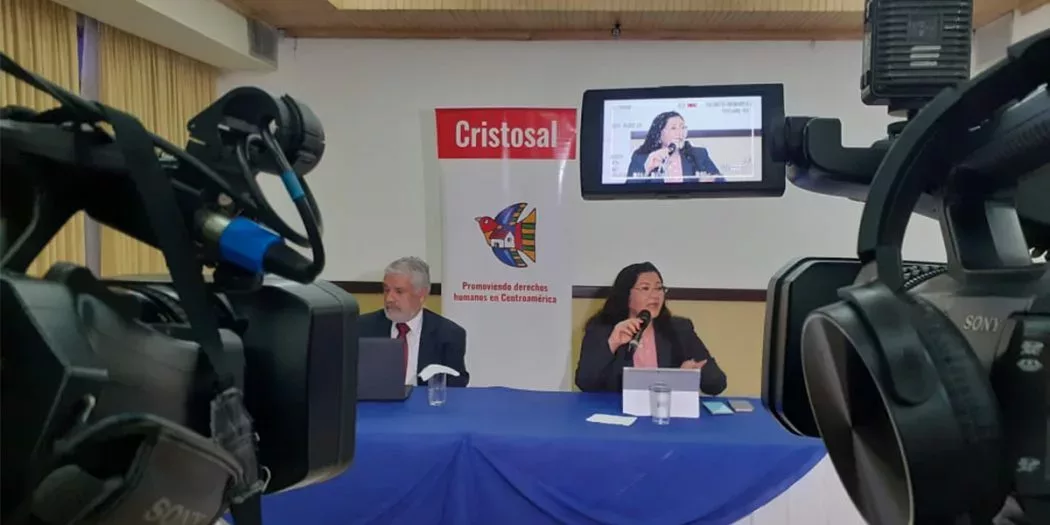“As a whole, these reforms entail a return to the inquisitorial criminal process model; they assume the ‘criminal law of the enemy’s approach, to obtain the highest number of convictions without procedural guarantees and inequality for the accused party,” the organization mentioned in a statement.
Cristosal’s director of strategic litigation, Abraham Ábrego, explained that in this criminal model, judicial processes become without guarantees, independence of judges and the possibility of having the right to defense. “Those rights that we have, in the end, are being taken away from us little by little,” he said.
The organization’s analysts delimited that the reforms made to the Criminal Procedural Code and the Telecommunications Law are the ones that originated this analysis. In the first one, they mentioned that the reforms suppressed the presumption of innocence and the right to defense by establishing that any detained person can remain in provisional detention without a precise time limit and the right to defense, the implementation of faceless judges, and the convictions with reference witnesses.
Regarding the Telecommunications Law, the reforms oblige internet service providers to store user data and information such as images and documents, call and phone line records, block cellular devices and allow geolocation; everything could be shared with the prosecution without judicial authorization.
On the other hand, they mentioned that the proposed reforms to the Law Against Organized Crime allow minors to be judged based on the organized crime modality, which would go against the provisions of Article 35 of the Constitution.
In addition, it enables collective trials, an action frequently used in this regime of exception.
Voces: https://voces.org.sv/reformas-a-legislacion-crean-un-regimen-de-excepcion-de-facto-permanente/
Reformas a legislación crean un régimen de excepción de facto permanente
“En su conjunto, estas reformas conllevan un regreso a modelo de proceso penal de corte inquisitivo, asumen el enfoque de ‘derecho penal del enemigo’, con el fin de obtener el mayor número de condenas sin garantías procesales y la desigualdad de la parte acusada”, mencionó la organización en un comunicado.
El director de litigio estratégico de Cristosal, Abraham Ábrego, explicó que en este modelo penal los procesos judiciales se vuelven sin garantías, independencia de jueces y sin posibilidad de tener el derecho a la defensa. “Esos derechos que tenemos, al final nos los están quitando poco a poco”, expresó.
Las personas analistas de la organización delimitaron que las reformas hechas al Código Procesal Penal y a la Ley de Telecomunicaciones son las que originan este análisis. En la primera, mencionaron, las reformas suprimieron la presunción de inocencia y el derecho a la defensa al establecer que cualquier persona detenida puede permanecer en detención provisional sin límite de tiempo claro y sin derecho a defensa, la implementación de jueces sin rostro y las condenas con testigos de referencia.
Sobre la Ley de Telecomunicaciones, las reformas obligan a los proveedores de servicios de internet a guardar datos e información de los usuarios como imágenes y documentos, registros de llamada y líneas telefónicas, bloquear aparatos celulares y permitir la geolocalización; todo podría ser compartido a la fiscalía sin autorización judicial.
Por otra parte, mencionaron que las propuestas de reforma a la Ley Contra el Crimen Organizado permiten que menores de edad sean juzgados con base a la modalidad de crimen organizado, lo cual iría en contra de lo establecido en el artículo 35 de la Constitución.
Además, posibilita los juicios colectivos, la cual es una acción utilizada frecuentemente en este régimen de excepción.
Voces: https://voces.org.sv/reformas-a-legislacion-crean-un-regimen-de-excepcion-de-facto-permanente/

